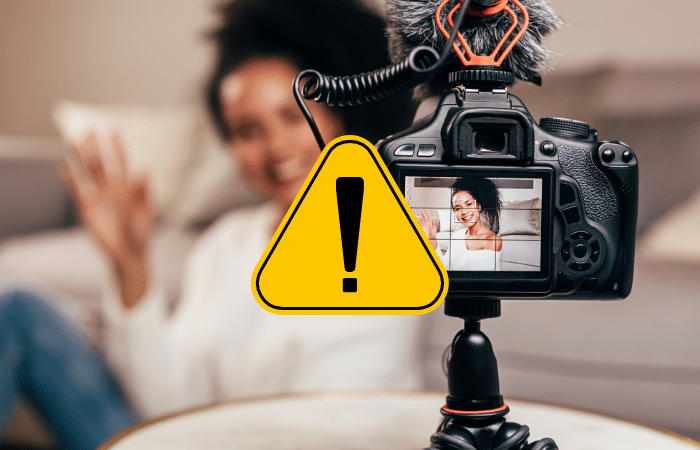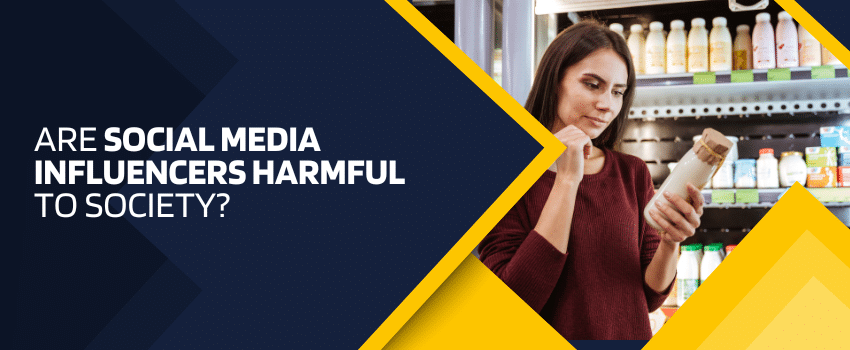Introduction
Social media influencers can either prove to be harmful to physical or mental health or they can adversely affect it in a healthy way and promote a positive attitude. Social media has transformed the way we connect with people and promote our brands and services.
Influencers are frequently seen as trendsetters and role models, especially by younger audiences. They are frequently viewed as the epitome of beauty, success, and popularity. As a result, “aspirational” material has become more popular, with influencers showcasing their opulent lifestyles and endorsing things that aim to make their fans more like them.
They must take responsibility for the products they endorse on social media because most customers, particularly Gen-Z, rely on their recommendations when making purchases.

What Makes Social Media Influencers Successful?
Successful social media influencers have an array of experience, knowledge, skills, and good communication abilities. Social media influencers who produce relatable, high-quality content benefit their target audience. Influencers also frequently disclose personal triumphs and setbacks on social media, giving them a better opportunity to engage with their target audience.
Brands often contact social media influencers for promotions and advertising arrangements once they have a good following and their material goes viral. This enhances the influence social media influencers have on society and contributes to their success.
How social media influencers impact society positively?
Social media influencers can serve as positive role models for youth, encouraging them to follow their passions, aim high, and lead healthy, happy lives. Numerous influencers disseminate relatable and genuine information that connects with youth and inspires them to follow their dreams.
Influencers are not just about fun; a large number of them also offer informative content that improves the lives of their followers. Influencers are now evolving into effective information and learning resources, offering anything from science experiments to language tutorials and do-it-yourself (DIY) tasks.
They also educate their followers about social issues by putting them in the spotlight and promoting conversations about them. Examples of these include equality, mental health, and climate change. A large number of well-known internet influencers participate in social advocacy as well.
Influencers frequently open up about their own issues and experiences, which makes it easier for society to relate to one another and feel less alone. Their material has the capacity to instruct and empower young people to make wise decisions about their lives. They also encourage their audience to speak about their issues and be more open.
Social media influencers may also help young people make educated decisions about their looks and wellbeing by offering insightful knowledge and guidance on issues like fashion, cosmetics, and health. They also highlight the worth and beauty of many cultures and origins, encouraging diversity and inclusivity. Influencers can encourage young people to adopt a more welcoming and inclusive perspective by including people from a range of backgrounds in their material.
In general, it is impossible to exaggerate the positive impact that social media influencers have on society. Influencers have the ability to uplift, inform, and encourage young people to adopt positive beliefs and habits through their platforms. As a result, they are extremely important in forming the leaders and change agents of the future.
However, social media influencers can also have a negative impact on society.
How social media influencers impact society negatively?
A lot of social media influencers provide a flawless and idealized picture of themselves and their lives, which can cause the audience to have irrational expectations and body standards. It’s no lie that many young people may experience body shaming and low self-esteem as a result of this.
Another thing is that social media influencers provide a window into the lives of the wealthy and famous for their large followings, with their allegedly flawless bodies, opulent lifestyles, and exotic travels. As a result of trying to imitate their favorite influencers, young individuals may develop irrational expectations.
Furthermore, if, as a society, we are constantly exposed to the content of influencers, one may develop FOMO, or the fear of missing out. Young individuals may feel inadequate or undeserving as a result of this when they compare themselves to others. One can experience feelings of depression, loneliness, and isolation as a result.
Society can also be negatively impacted by the paid collaborations that many social media influencers participate in. These influencers frequently utilize their social media platforms to trick their followers into buying the things they are promoting. Due to the continual barrage of endorsements and commercials, youth are susceptible to materialism and consumerism.
Not only this, but misinformation and “fake news” have now become more prevalent as a result of the rise of social media influencers. Numerous influencers have a history of disseminating untrue information and unfounded rumors, which can be harmful to the audience who follows them. This may result in a lack of critical thinking skills and an inclination toward using social media instead of more trustworthy sources for information.
Conclusion
It’s critical to understand that influencers don’t always have a negative impact. Many social media influencers use their platforms to spread uplifting ideas about social justice, mental health awareness, and body positivity. But it’s crucial to critically evaluate the information we take in and consider the reasons behind it.
It is important to keep in mind that influencers are frequently compensated to endorse things, and their information might not always be 100% authentic.








